From Sofika Prifti Cara
Part sixteen
To Forgive…!
– The Old Kavajë Clan – CARA
Memorie.al/ publishes several parts from the book ‘To Forgive’, authored by Mrs. Sofika Prifti (Cara), published by the Institute for the Study of Crimes and Consequences of Communism in Tirana, in which the author has described in detail and with professional competence, the history of one of the most renowned clans, not only in the city of Kavajë but also beyond – the Cara clan, from which emerged not only distinguished patriots who contributed to the national cause and the freedom of Albania, but also famous intellectuals, graduated in the West, who later returned to the homeland, contributing to various fields of science and life. However, even though the descendants of the Cara clan dedicated their lives to the national cause, after the communists came to power at the end of 1944, they would be persecuted, imprisoned, and interned, and the fierce class struggle would follow them until 1990, when the collapse of the communist regime began.
Continued from the previous issue
The Death of Xhevdeti
Eight months after the stomach operation, on February 21, 1995, at the age of 55, Xhevdet Cara passed away, unmarried! But he had no regrets about death, “because one day we will all die,” he used to say, “we are guests in this world and on this earth; whoever is born, will also die.” But he did die with some regrets: firstly, that he couldn’t go to his father’s grave, who had died 13 years before him in Melbourne, Australia. He entrusted Bardhi with the pledge that, if he went to Australia, he should place a bunch of flowers for Xhevdeti too.
But the government has no desire to help us. Such cold indifference towards our social layer, which was separated alive from parents who were persecuted by the communist regime of Enver Hoxha and his successor, Ramiz Alia! They fled, pursued by the communists! This stratum undoubtedly includes those families who began to suffer from 1944 onward. These were the Ballistët (National Front members) and Zogistët (supporters of King Zog).
Albania does not have an embassy or consulate in Australia, so we had to go to Greece and Yugoslavia to get a visa, but even there they didn’t help us. We don’t know how people travel to that distant country. When our State Ensemble of Folk Songs and Dances went to Melbourne, Bardhi’s father met them and personally took care of all their needs. But Xhevdeti also regretted that he didn’t see many joyful days for the family and that he couldn’t go to Australia.
Xhevdeti’s death for me was like losing a child, as if something was severed from my soul. We had spent 35 years together; he disappeared like snow melting in the sun. With Xhevdeti and Ija, I raised the children, wandering for 15 years through prisons, wherever they sent Bardhi!
Since he cut his fingers, he was anemic, with a weak physique. At that time, we had no heating facilities, so I was forced to heat water and fill Coca-Cola bottles with hot water every 2–3 hours, to put on his hands or feet, to warm them up (!!). Only kerosene stoves were available then, no modern means like today.
I washed him, dressed him, and fed him like a child, supporting him with 3–4 pillows, and we sat and smoked cigarettes together. One thing I don’t forget: initially he called me sister, later he started calling me mother. When Bardhi helped him, he would say: “No, no, you hurt me, call Mother, she doesn’t hurt me!” I cannot explain how much God eased my burden! There were times when I didn’t sleep at all, neither day nor night. Sometimes in short pieces, but I didn’t feel the fatigue; I was never upset. Strangely, I felt light as a leaf! I thank the great God for relieving me, taking away my need for sleep, and giving me strength!
I wanted to do everything for Xhevdeti, so that he could live many more years with us. He truly remained a bachelor, but he was never without family and brotherly love, as the love and respect for him never ceased. He was like a delicate tree for us, planted with care, but which gives its fruits, and we wanted the best for Xhevdeti, for what he suffered in life and for what he did for our children.
Xhevdeti was very sincere and fair. As soon as death appeared, two days before, he called me and said: “Oh, Mother! You have me for only two more days, so I will give you some instructions to remember: the first is to place a bunch of flowers for me at my father’s grave. The second is to keep my photograph as long as you live. The third, I want a simple grave, so that people don’t step on me. The fourth, you must receive and respect my friends and comrades as if I were here. The fifth is for you to sleep and rest, because you are very tired because of me. The sixth is to maintain and preserve the friendship with Pëllumbi.”
“He is a TV technician, originally from Elbasan, who lives in Kavajë. We met him by chance. Our television broke down once, and a cousin of Bardhi recommended Pëllumbi, saying he was a good technician with reasonable prices. Our TV was old, black and white. We went and called him, and he came. The defect was big; he got tired and delayed, but finally fixed it. While working, Xhevdeti kept him company, with a glass of raki in front of him. Neither of them were raki drinkers. Xhevdeti liked that honest man very much; we were satisfied and enjoyed talking to him until we became friends. Whenever the TV broke, Pëllumbi would come quickly and fix it. He never charged us any money, not only him but also his brother, Petrit Çala, who was a refrigerator and washing machine technician. Pëllumbi especially came without hesitation. We became friends. He is a boy with a big heart, well-educated, knows how to appreciate people, speaks with maturity, is honorable and very accommodating. In our family, everyone loves Pëllumbi, and we have special respect for him. Xhevdeti swore by Pëllumbi, which is why he entrusted me with the pledge to maintain our friendship with him and respect him. I have tried to keep this pledge of his firmly in mind.”
The Collective on Xhevdeti’s Death
When Xhevdeti died, we sent out a notice to Fier. Upon learning of Xhevdeti’s death, many people came from Fier: neighbors, comrades, friends, colleagues from the Food Enterprise, etc. This time, even more people came from the collective to bid their final farewell to their unforgettable comrade, the man who had no tongue in his mouth, because his language was only for greeting “good morning,” “good evening,” etc. He had become mute, with a tongue in his mouth!!
Xhevdeti worked for 26 years and never received a day of pension! (Why?) In this book, I have returned several times to his figure. But I still feel that I have written little about Xhevdeti. I haven’t said a single word about the Spaç prison, where the other brother (Sabriu) was, where we have very bitter memories (the times when night caught us in the forest, when we sometimes spent the night high up in the trees, when he had a hernia in the mine, etc., etc.)
Every person has a special desire in life that keeps them alive with hopes, and sometimes it can be realized! But for us, this desire is only fulfilled in a dream when we sleep. Bardhi and Xhevdeti had one small desire that is only fulfilled in a dream: to place a bunch of flowers on their father’s grave!
If you look at Bardhi’s hands even today, the marks of the irons from the tightening of the prisons are still there, because, the police said, he is stubborn and sworn. But why was my husband stubborn and sworn?! Because he didn’t want to become their servile puppet or spy! That is the answer.
This earth carries everything on its back, good and bad. Each one has an action, a reaction that is delayed but never forgotten. For example, we have a butterfly and a wasp; both have wings, both breathe, both fly from flower to flower, but they differ from each other. If you catch the butterfly and remove its wings, it can no longer fly, but falls down until it dies, and it never stings or bites you with its antennae, so it doesn’t cause you pain. The opposite happens with the wasp: it comes close to you itself, and without you catching its wings, it stings you, causes you pain, and sometimes even causes death, meaning it is ready only to harm you.
Here lies the difference between the two social classes: our class, i.e., the former politically persecuted, is destined to suffer, because that system clipped our wings like butterflies, while the other class, the privileged, is wasps, destined to do harm, who even desired the death of our class.
Only dreams can carry you to the peak of a very high mountain, up to the clouds, which even a professional mountaineer would envy, but in reality, it is completely impossible to climb that height. This dream was unattainable for Xhevdeti. That unfortunate man was escorted to his final resting place by many Kavajë citizens, the collective where he worked (their representative also gave a short speech at the cemetery), his company, his friends; they escorted him with great honor and respect, as was fitting.
We always feel Xhevdeti’s presence in our home. I am relieved that his last wishes have been fulfilled, with the exception of one that is beyond our capabilities: placing a bunch of flowers in his name at his father’s grave in Australia. His memory will remain unforgettable.
Our Good Friends
Attempts to place a bunch of flowers on my father’s grave in Australia were made as early as 1991–’92. Bardhi and Xhevdeti went to a friend in Greece then, where the Australian embassy was, but achieved nothing.
In Fier, we had a Greek couple as neighbors, who had arrived there during the Italian-Greek war. They had no children, only a niece married in Tirana. The neighbors were named Kaliroi and Vasil Tsatsani. Their home and people were in Athens. Kaliroi didn’t know Albanian well; Vasili was an agronomist at the Executive Committee. It wasn’t long before that good man was sentenced to 8 years in prison, accused of “agitation and propaganda against the Albanian state”!! Kaliroi was interned in Shtyllas for five years. She served the five years, but they kept her there. As a foreigner, she petitioned several times until they accepted and brought her to Fier.
Vasili was also released, they didn’t keep him in prison for long, but they arrested him again and sentenced him to another 8 years, under the same charge, of which he served 7 years. In prison, Vasili frequently petitioned our government to go to his country, Greece. Finally, his prayer was granted. Kaliroi had been brought to our apartment building. Our doors were close to each other, and she often stayed with me. Meanwhile, the niece in Tirana had cut ties with her, because she and her husband worked in a ministry.
When Vasili was released from prison, the decision to return to Greece arrived a week later. They decided to leave on April 11, 1985; on that very day, the dictator Enver Hoxha died, and they left a week later. With Kaliroi, we were like mother and child; we ate together, slept, she cooked, and I went to work, did the chores outside, and shopped. Both of our husbands were in prison. They were between the ages of 65 and 70. Bardhi was the first to be released from prison in 1982, while Vasili was released in 1985. Both of us had a Milika (she was in the same entrance as me) who wouldn’t leave us alone. Every night, she would report to the neighborhood plenipotentiary, telling tales of what she had seen and heard, elaborate lies, which she later admitted when democracy came.
Initially, Bardhi and Xhevdeti went to Greece, but they couldn’t arrange anything to go to Australia. In 1998, we received help from Kaliroi’s niece in Tirana, who came with us to the Embassy because we didn’t know Greek or English. Bardhi came to Albania for money. At this time, the “Prasina Karta” (Green Card) was issued. I got it, but Bardhi missed out. The matter was then arranged according to Greek laws, so that I would be financially dependent on him (for the visa process). Thus, I was given the visa for Australia, but Bardhi was not, because he didn’t have a green card! There, in Athens, a student whom I had taught at the “Çlirimi” Farm in Fier coincidentally saw me; he, along with his friends, showed us around Athens, Piraeus, and Patras. They had left for Greece in 1985, when many Greeks returned to their country.
We stayed in Greece for about two years, and in December 1999, we returned home. In fact, our friends, Kaliroi and Vasili, didn’t want us to leave; they had two entrances with six rooms each; one they had rented out. They told us: “Here is your home; later bring the children too!” They kept us in the palm of their hands. They did everything to please us.
The other friend, Andon Konomi, was from Patras but had lived with his family in Fier for a long time. His father, Miço Konomi, was the best doctor; he had graduated from school in Athens. In the dark years of Enver Hoxha’s communist inquisition, he was imprisoned, and later, his son was also imprisoned. They spent many years in prison until they left for Greece. In Patras, they had two sets of houses. When we went to Patras, we had a great time with Andon’s family.
When we returned to Kavajë, after 2–3 years, my good friend Kaliroi died; she had requested: “If I die, you must throw three handfuls of soil on me!” Although they provided me with a guarantee and we faxed the Greek embassy, they did not give me a visa to attend Kaliroi’s funeral. At that time, I received six other guarantees. The Greek was still Greek; he was harsh; they still didn’t give me a visa! A little later, Vasili also died, and thus we lost two good friends. Now we only have Andon. Memorie.al




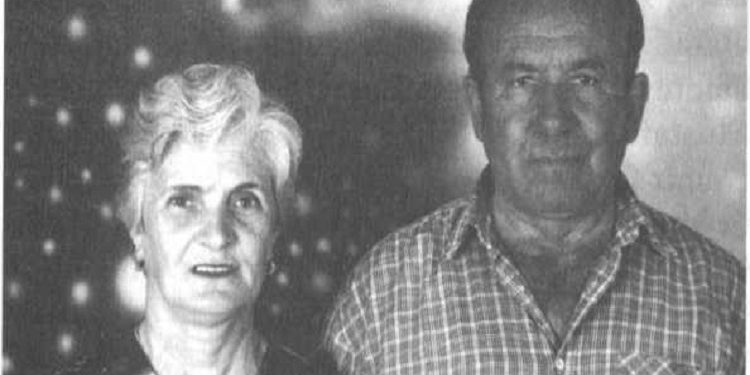
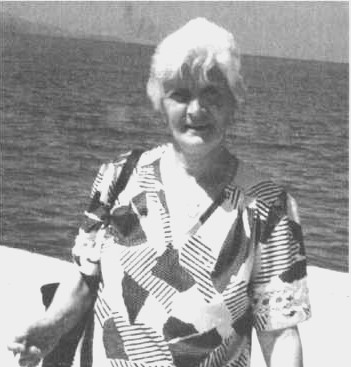
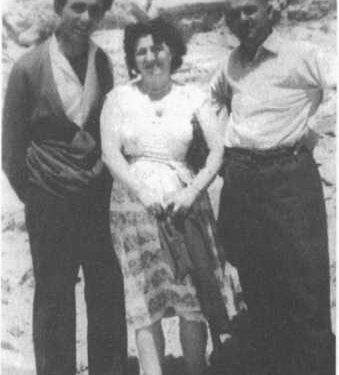
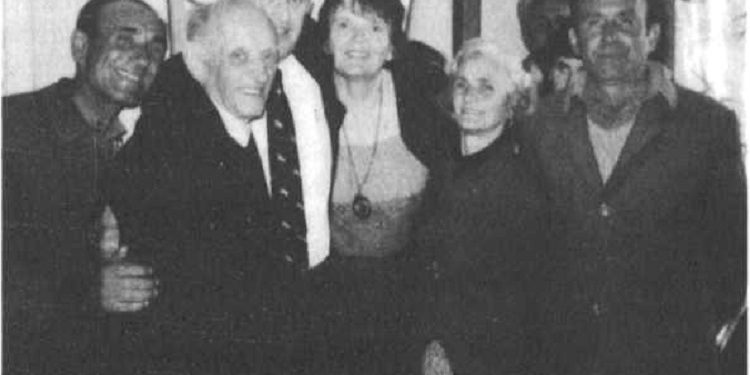
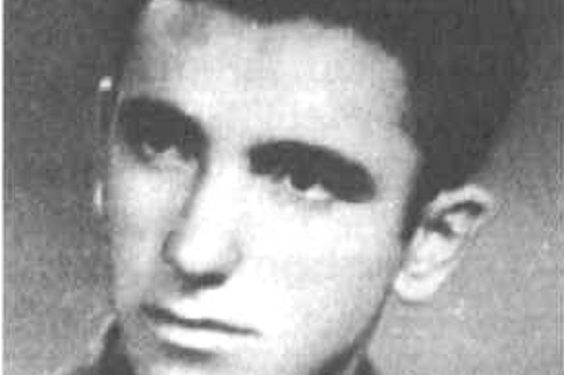
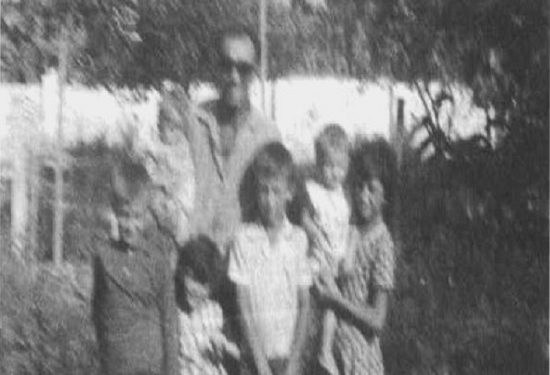
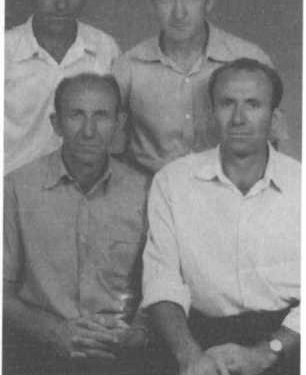
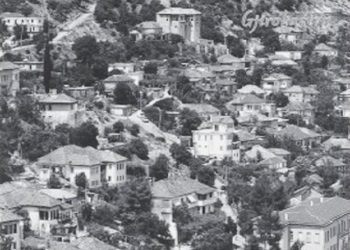
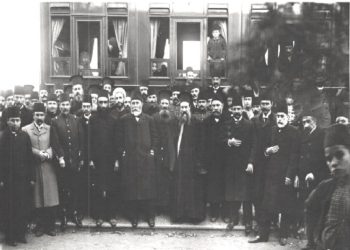
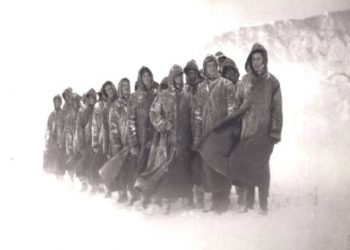

![“When the party secretary told me: ‘Why are you going to the city? Your comrades are harvesting wheat in the [voluntary] action, where the Party and Comrade Enver call them, while you wander about; they are fighting in Vietnam,’ I…”/ Reflections of the writer from Vlora.](https://memorie.al/wp-content/uploads/2025/06/admin-ajax-4-350x250.jpg)

